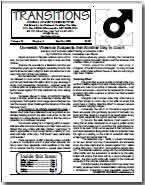
A spectacular gender gap has resulted in men’s health problems being allocated a quarter of the funding women’s health research gets, ranked just ahead of parasitic infections.
This is even though men die four and a half years earlier than women, and are 60 per cent more likely to die from cancer.
It is one reason there is still no reliable test to detect aggressive forms of prostate cancer, a bigger killer than breast cancer.
Men’s health ranked 36th for federal government health research funding in 2012, behind sexually transmitted infections and just ahead of parasitic infections, an exclusive analysis by News Corp Australia shows.
Since 2003 women’s health research received more than $833 million from the National Health and Medical Research Council compared to less than $200 million for men.
Breast cancer received $60 million more than prostate cancer and ovarian cancer $64 million more than testicular cancer.
The smaller funding for men’s health research is a paradox given their average life expectancy is just 79.7 compared to 84.2 for women.
And the fact that one in two Australian men will be diagnosed with cancer by the age of 85 compared to only 1 in 3 Australian women.
Prostate Cancer Foundation chief Dr Anthony Lowe says “it is unexpected for men to find themselves in this position” and he says men’s failure to seek healthcare for themselves is partly to blame.
“We know men are much worse at health seeking behaviour and have worse health outcomes,” he said.
NRL identity Darryl Brohman was diagnosed with prostate cancer in 2010 and is concerned about the lack of knowledge of this cancer that impacts the lives of 1 in 7 men.

Men need to be more aware of health issues … NRL and media personality Darryl Brohman believes there’s a lack of knowledge out there. Source: News Limited
“I do think men need to be more aware,” said Mr Broman.
“It is something that you would never know you had if you didn’t get checked. A simple blood test could save your life. It did for me.”
Legendary broadcaster Alan Jones, who has suffered from prostate cancer and melanoma, said men were their own worst enemies when it came to generating awareness and funding for male-specific cancers.
“Women tend to be braver and tougher – they have talked about their experiences and so people feel more comfortable addressing breast cancer and cervical cancer,” Mr Jones told News Corp Australia yesterday.
Mr Jones said he had many prominent CEOs and political figures who had told him of their private struggles with cancer but were terrified of the news going public because “they were worried the share price of their company would go down” or “they wouldn’t be able to stand for a leadership position”.

Radio personality … Alan Jones says men can be their worst enemies at times. Source: News Limited
Jones said cancer struck all genders and age groups and so more research funding should be directed at the overall causes of cancer.
“We’ve got to see if there is something common to all forms of cancers, regardless of if it is a female cancer or a male cancer,” he said.
The Prostate Cancer Foundation is now trying to attract more researchers into men’s health and says fund raising campaigns like Movember are helping.

Dayne Hudson and Johnny Crotti have been bringing awareness to the lack of men’s health funding. Picture: Jeremy Piper Source: Supplied
Greg Andresen from Men’s Health Australia says health research funding shouldn’t be a competition between the sexes but he admits men’s health advocacy is decades behind women’s.
A longitudinal study on women’s health has been underway for almost two decades but Australia only got its first men’s health policy in 2008 and the Ten to Men longitudinal study into men’s health only began in 2011.
The NHMRC says the main primary reason for the difference in funding between women’s and men’s health relates to the types of applications it receives.
There were twice as many applications to the NHMRC for breast cancer as for prostate cancer and five times more for ovarian cancer than testicular cancer in the decade 2003-2013, an NHMRC spokesman said.
Ben Peacock was diagnosed with testicular cancer eight years ago at the age of 33.
“I thought it was an old man’s disease,” Mr Peacock said. “But then I found out it was the second biggest killer of young men and more common than I thought.”

Caught unaware … Ben Peacock was diagnosed with testicular cancer. Source: News Limited
Before being diagnosed, he was completely unaware of testicular cancer.
“I found out about the disease and survival rates along the way,” he said.
Today he is an author, co-founder of sustainability communications company Republic of Everyone, co-creator of the multi-award winning Garage Sale Trail, a husband and a father.
“My battle has taught me about myself and what it means to be a man. I would have been dead five years ago if I hadn’t done anything about it.”


